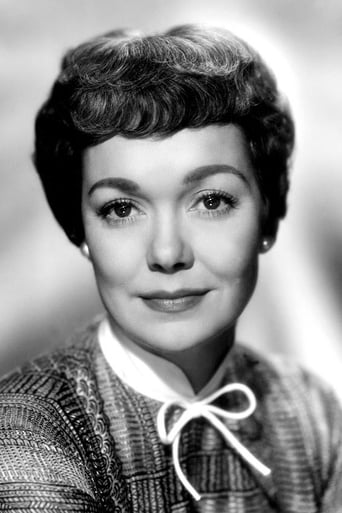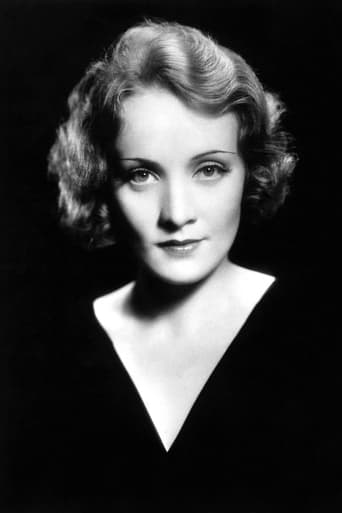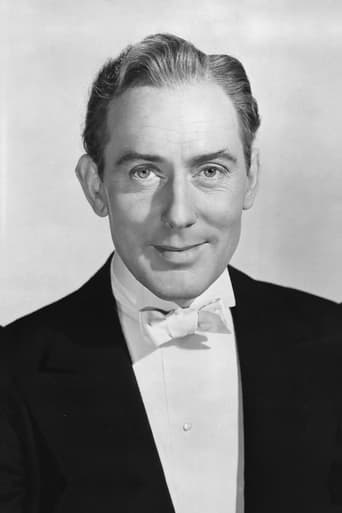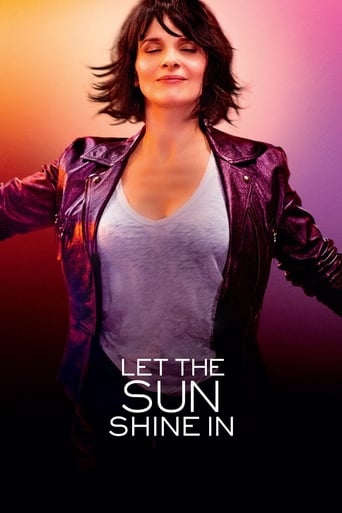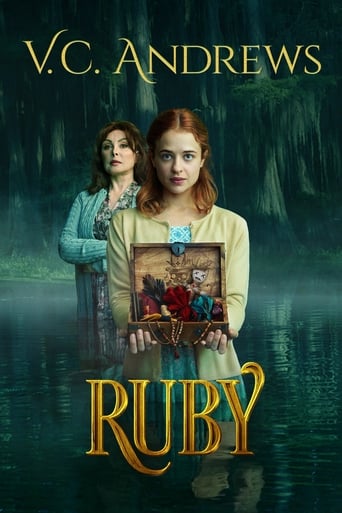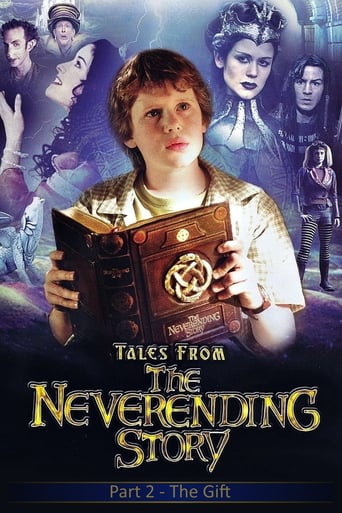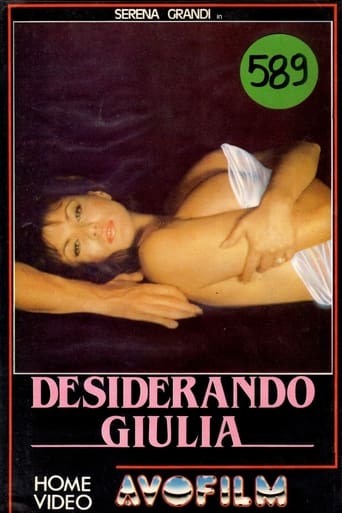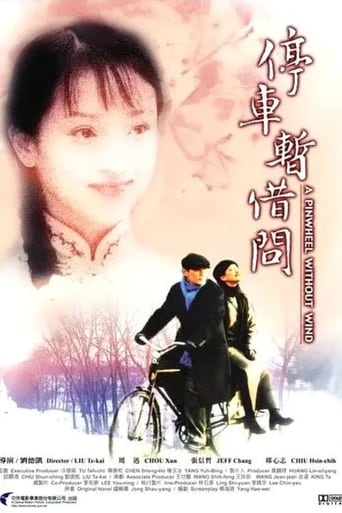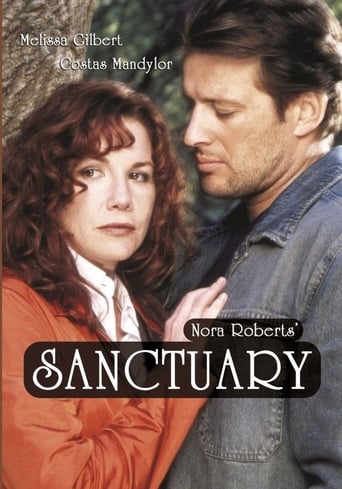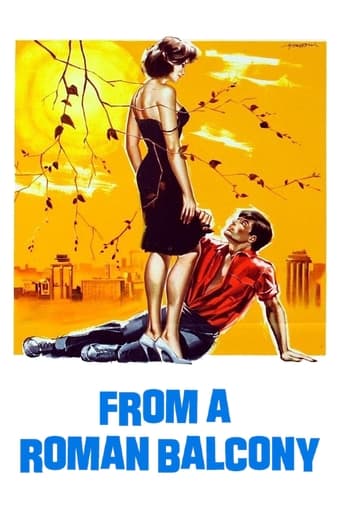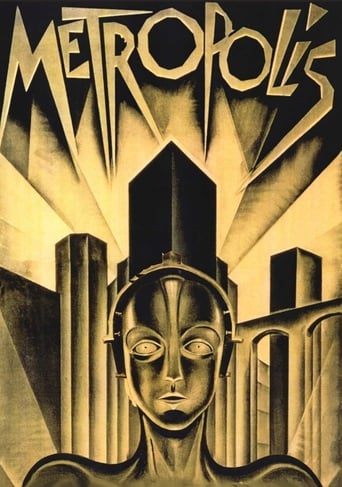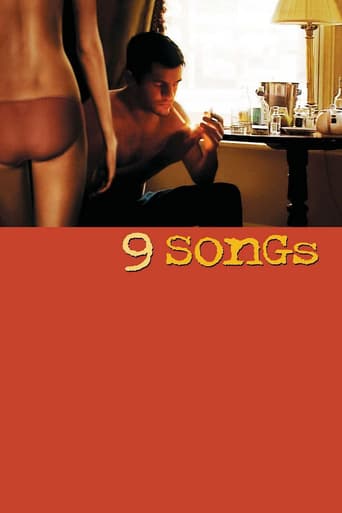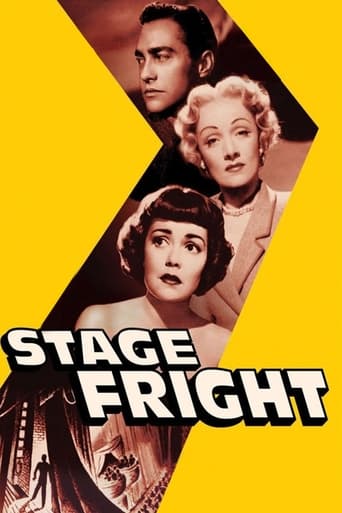
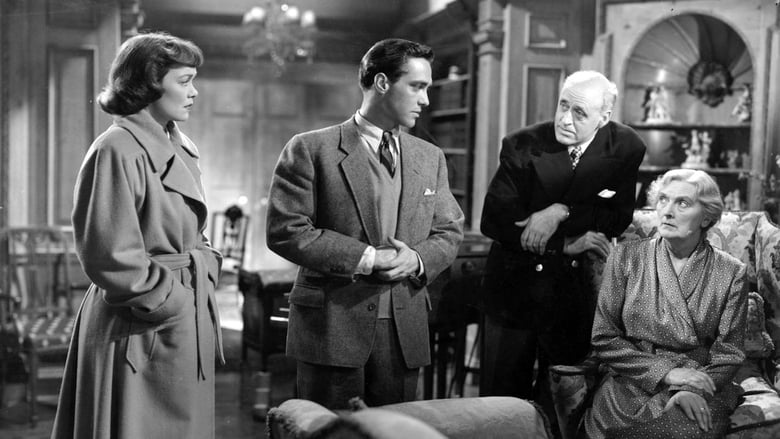
Stage Fright (1950)
A struggling actress tries to help a friend prove his innocence when he's accused of murdering the husband of a high-society entertainer.
Watch Trailer
Cast
Similar titles

Reviews
I like the storyline of this show,it attract me so much
Touches You
Best movie ever!
The film never slows down or bores, plunging from one harrowing sequence to the next.
With a friend being keen on watching a psychological Thriller,I decided to search around at a local CEX.Despite having heard about the "controversial" twist,I have somehow never got round to seeing Alfred Hitchcock's Stage Fright.Spotting the DVD being sold at a great price,I felt that it was the perfect time to step on to the stage.The plot:Whilst rehearsing a play at RADA,drama student Eve Gill is surprise to find her best friend (and secret crush) Jonathan Cooper visiting RADA,where he asks Gill if he can hide at her house.As she drives him to her home,Gill asks Cooper what he is running away from.Cooper reveals that he went to cover his secret lover Charlotte Inwood murder of her husband, (which led to Inwood's dress being covered in blood,an item which Cooper has gotten hold of)but got spotted by Inwood's dresser Nellie Goode,who reported Cooper to the cops for murder.Introducing Cooper to her dad,Gill's father notices that the blood on Inwood's dress appear to have been deliberately smeared on it.Suspecting that Inwood has set Cooper up,Gill & her dad decide to confront Cooper with their suspicions,who shows his approval for their idea,by throwing the blood stained dress on a fire.Losing the biggest piece of evidence,Gill decides that the only way she can now prove Cooper's innocence is to go undercover and find out about what Inwood does once the curtain goes down.As she starts gathering info on Inwood,Gill begins to discover that murder is not a dress rehearsal.View on the film:Despite Hitchcock saying that the (still) controversial twist in Whitfield Cook/Alma Reville/James Bridie & Ranald MacDougall adaptation of Selwyn Jepson novel Man Running was his "Second biggest film mistake" the twist actually sums up the themes in the film in a perfect manner.With mistrust being right at the centre,from Gill trying to keep her real motives hidden from Inwood,to Gill's dad suspecting the Cooper is not giving the full story on the blood stained dress.Going against the grain of Hitchcock's traditional "man on the run",the writers instead push all the guys to the side lines,in order to make this a gripping women on the run,as Gill's attempts to keep her true motive hidden from Inwood leads to Gill having to take increasingly desperate measures,in order to keep both sides of her life separate from each other.Making sure that the movie does not solely rely on its sting,the writers build a superb menacing Film Noir atmosphere,which creeps across the screen as Gill's desire for the facts to change tightens its grip.Perfectly setting the mood by raising the curtain on London,Hitchcock & cinematographer Wilkie Cooper push the viewer into the fractured psychological issues facing the characters with dazzlingly low-lit,tightly held shots,which allow the viewer to witness the moment when the "truth" tears Gill apart and leaves Cooper's image completely shattered. Emphasizing the dark uneasy mood,Hitchcock covers the film in ultra-stylised tracking shots,which along with revealing the dark corners of the stage that Cooper & Gill hide in,also subtly expose Gill's belief that she and Cooper are both on the same track.Lighting up the title the moment she steps on stage,the alluring Marlene Dietrich gives an excellent performance that hits a perfect mix of Femme Fatale & upper-crust Diva.Along with reaching the high notes in the movies catchy songs,Dietrich keeps Inwood pouring with slick charisma,which leads to Inwood showing no weaknesses,when Gill confronts her with the "truth".Going in the other direction to Dietrich,a pretty Jane Wyman gives a great performance as Gill,thanks to Wyman giving Gill a strong determination over clearing Cooper's name,which Wyman gradually shows to crumble,as Gill uncovers the real events behind the murder.Joining the girls, Alastair Sim gives a performance flowing with charm as Gill's nervous dad,whilst Richard Todd shows Cooper's calm manner to be a hollow shell,which shatters as he exits,stage death.
The plot of "Stage Fright" involves a man (Richard Todd) being wrongly accused of the murder of the husband of his actress lover Charlotte Inwood (Marlene Dietrich), his escape from law, and with the help of a struggling young actress named Eve (Jane Wyman), the clearing of his name.The wrong man theme has been done by Hitchcock before (39 Steps) and after this movie (The Wrong Man, North By Northwest), and to better effect - but the key difference here is the ending revelation that he did in fact commit the murder, and not just happen upon the body.This ending plot twist, and the opening, near silent scene where Richard Todd's character gets caught at the scene of the crime by the maid and then gets chased by the police, provide much of the thrills for the movie. The latter in particular shows off some great camera work and visual storytelling, showing the lead character's anxiety and fear of being caught.In between, the film plods with a romance plot between Eve and a detective trying to solve the case (Michael Wilding), some average Marlene Dietrich performances, and Eve pretending to be Charlotte's maid so that she can find out more about what really happened.Blackmail and fear of being found out to be harboring a wanted man is what makes up the middle portion of the movie, with Eve nearly being caught out by the detective several times, or by Charlotte's actual maid who realizes that she isn't a reporter, and then blackmails her to keep quiet.My problem these scenes aren't very suspenseful at all, and the movie, while watchable, is a bit of a slog to sit through - with Hitch's direction being a bit conventional for most of the movie.It's well enough to sit through once, but I don't think I would see it again.
My title may seem a little off-base since "Stage Fright" comes about in the middle of the nearly five decades that Alfred Hitchcock thrilled audiences with his films. But, whenever it was that one saw a Hitchcock film, we always had a sense of "Wow, he did it again." The again, of course, was his clever shooting, scripting, and direction that entertained and beguiled us while keeping us in the dark about many parts of the film and its outcome.One could have fun with lots of "m's" – as in mayhem and murder -- to describe Hitchcock movies. But we should remember that Hitch also did some comedies and romance. While he wasn't known for those, I think they give us a little hint about the subtle humor that he likes to weave into some of his stories. Not all, but some. Including his cameo shots in almost all of his mystery films. "Stage Fright" has a touch of comedy in the dialogue, and more in the mannerisms of one of the main characters – Commodore Gill, played by Alastair Sim (as the credits note, billed as "Alistair" Sim). Sim will forever be known to movie fans as Ebenezer Scrooge from the 1951 filming of Charles Dickens' "A Christmas Carol." And although he did have some serious roles in earlier mysteries and dramas, Sim was very successful the last half of his career with comedies. In "Stage Fright," Commodore Gill's wit and light-hearted manner gives a sense of calm to contrast the high tension of Jane Wyman's Eve Gill. Wyman excels in her role, and the other main characters are all very good. Marlene Dietrich is not the star of this film, but she has a main role of suspicion that she carries us along with very nicely. Richard Todd's Jonathan Cooper is very good, and Michael Wilding, Sybil Thorndike and Kay Walsh are excellent as Ordinary Smith, Mrs. Gill and Nellie Goode, respectively.I won't discuss the plot, because I think that reveals too much and the suspense is a big part of the enjoyment of these films. Suffice it to say that "Hitch has done it again." He dazzled movie goers for more than four decades with many of the best crime mysteries ever put on film. No one could do them better. And, while he did receive five Academy Award nominations, he never did win an Oscar. This is one of those uncanny things about Hollywood, the movie industry and the Oscars. Films that Hitch directed received nearly 50 Academy Award nominations. They won six Oscars and two Golden Globes – for others. And, if nothing else, Hitchcock was one of the most successful movie directors in the U.S. and England. Most of his films from the 1930s through 1960s were huge box-office successes. Many big name stars appeared in Hitch films – some in more than one. Cary Grant, James Stewart, Gregory Peck, Laurence Olivier, Sean Connery, Peter Lorre, Charles Laughton, Claude Rains, Paul Newman, Henry Fonda, Rod Taylor, James Mason, Raymond Burr, Ray Milland, Robert Cummings, Montgomery Clift, Joel McCrea, Karl Malden, Joseph Cotton, George Sanders, and Robert Donat had some of the male leads. Ingrid Bergman, Julie Andrews, Janet Leigh, Carole Lombard, Maureen O'Hara, Joan Fontaine, Diane Baker, Doris Day, Anne Baxter, Kim Novak, Eva Marie Saint, Shirley MacLaine, Grace Kelly, and Laraine Day were among the female leads.At the time of my writing this review in January, 2014, nine of Alfred Hitchcock's films are among the top 250 rated movies on the IMDb list. "Rear Window" from 1954 is IMDb number 30, followed by "Psycho" from 1960 at number 31. "North by Northwest" from 1959 is ranked 57; "Vertigo" from 1958 is 67; "Rebecca" from 1940 is 134; and "Dial M for Murder" from 1954 is 168. The last three are "Strangers on a Train," 1950, at number 186; "Notorious," 1946, at 191; and "Rope" from 1948 at number 240. Is there another director who has more than nine films in the top 250 IMDb list in early January, 2014?Viewers may note that "Birds" from 1963 isn't on the IMDb top-250 list. Nor is "Lifeboat," long-considered one of the great movies of all time since it came out in 1944, smack dab at the height of World War II. Or, how about "Spellbound" from 1945? Or, "The 39 Steps" from 1935? Or, "Marnie" from 1964? Indeed, the list of great films by Hitchcock goes on and on. Most are mysteries, but some are romance and comedies. I recommend the above films to younger viewers who may want to see more of Hitchcock. And, the following list is sure to provide many more hours of movie enjoyment. "The Man Who Knew Too Much," 1934; "Secret Agent," 1936; "Sabotage," 1936; "The Girl Was Young," 1937; "The Lady Vanishes," 1938; "Jamaica Inn," 1939; "Foreign Correspondent," 1930; "Suspicion," 1941; "Saboteur," 1942; "Shadow of a Doubt," 1943; "I Confess," 1953; "To Catch a Thief," 1955; "The Troubles with Harry," 1955; "The Wrong Man," 1956; "Torn Curtain," 1966; and "Frenzy," 1972.
She steals the movie. I really enjoyed it and bought it for £1.29 on Amazon! Don't want to write any spoilers so if you get the chance, watch it. There's some really bad editing and vocal over-dubbing which in itself is quite amusing. Certainly worth a watch. I find some of Hitchcock's work a little reliant on his name to put the essential bums on seats but this I'm glad to say is an exception. The songs performed by Marlene are instantly forgettable with the exception of 'La Vie En Rose' despite one of the forgettable numbers being written specifically for her/the movie by no other than COLE PORTER! The extras on the DVD are nice to watch. Always like a bit of insight into the projects tho if I want to know more I always look to IDMB who do a GREAT job.
